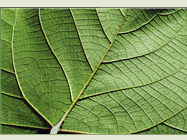
|

|

|

|

|

|

|
|
|
|
|
|
| Osmorhiza berteroi DC. | Species Image Gallery (opens in a new window) |
||||||||||||||
| TAXONOMY | |||||||||||||||
| Family: | Apiaceae | ||||||||||||||
| Genus: | Osmorhiza | ||||||||||||||
| Species Synonyms: | Osmorhiza divaricata (Britt.) Suksdorf Osmorhiza nuda Torr. Osmorhiza chilensis Hook. & Arn. Osmorhiza brevipes (Coult. & Rose) Suksdorf Washingtonia divaricata Britt. |
||||||||||||||
| Common Names: | sweet cicely mountain sweetroot |
||||||||||||||
| DISTRIBUTION | |||||||||||||||
| Canada: | northern British Columbia - southwestern Alberta, southwest Saskatchewan, Ontario - Quebec, Newfoundland, New Brunswick, Nova Scotia | ||||||||||||||
| Saskatchewan: | southwestern Saskatchewan | ||||||||||||||
| Ecoregion: | Cypress Upland | ||||||||||||||
| HABITAT | |||||||||||||||
| Saskatchewan: | white spruce and lodgepole pine woods on upper ravine slopes | ||||||||||||||
| RARITY STATUS | |||||||||||||||
| Provincial
Status According to Harms (2003): |
Threatened |
||||||||||||||
| Nature Conservancy Status: | G5 S1 |
||||||||||||||
| Saskatchewan
Species at Risk Status: |
None |
||||||||||||||
| COSEWIC Status: | None |
||||||||||||||
| Sweet cicely is threatened in Saskatchewan because it is extremely rare and regionally restricted in the province. No immediate threats are known but may occur in the future. | |||||||||||||||
| SPECIES DESCRIPTION | |||||||||||||||
| Height: | 30 – 100 cm tall | ||||||||||||||
| Roots: | taproot thin, aromatic | ||||||||||||||
| Stems: | may have persistent, woody stem base; above ground stems usually solitary (2 - 3), branched above, slender, straw-colored, stiff hairy (densely so when young) | ||||||||||||||
| Leaves: | on the stem, 1 – 3, alternate, sheathing, 5 - 15 cm long, round, 2 times divided into threes, thin, central axis and veins stiff hairy, margin coarsely saw-toothed | ||||||||||||||
| Leaflets: | ultimate divisions 2 – 6 cm long, oval to lance-shaped, terminal leaflet may be lobed or incised | ||||||||||||||
| Inflorescence: | umbel compound, spreading; lacking bracts; flowering stalk 5 – 25 cm | ||||||||||||||
| Umbellets: | 3 – 8; rays 4 – 6 cm long; pedicels 5 – 40 mm, widely spreading; bractlets lacking | ||||||||||||||
| Flowers: | petals greenish white; abruptly differentiated enlarged base of the style; style minute | ||||||||||||||
| Fruits: | dry fruit 12 – 20 mm long, linear, dark green to blackish, bristly white hairy, tapered to base, concavely narrowed at summit, conical beak ± 1.5 mm | ||||||||||||||
| |||||||||||||||